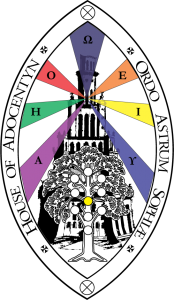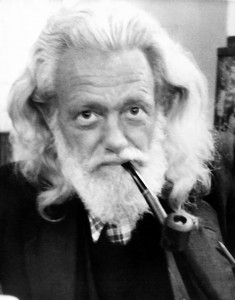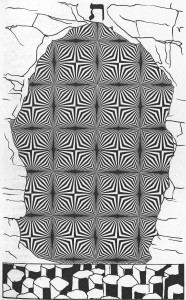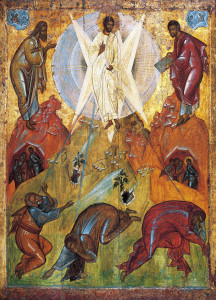This past week marked the 20th anniversary of the Waco massacre. The following editorial was published in the March/April 1979 issue of Gnostica magazine. In it, Denning and Phillips discuss the events of Jonestown from an occult perspective. Their comments could equally apply to Waco, and perhaps to some extent the tragic events in Boston this week as well.
The Guyana Massacre by Melita Denning and Osborne Phillips
from Gnostica no. 50 (vol. 7 no. 1), March/April 1979: Llewellyn Publications, St. Paul.
The mysteries, horrors and problems of the Guyana massacre having been brought out and sorted, more or less, into public categories, a number of people have set out to tell other people how they ought to react and, after that, what they ought to think about it. Meg Greenfield, in Newsweek (December 4), sums up a number of the political and religious “lessons” that right-wing political and “anticlerical” religious writers have drawn from the tragedy, and assesses them collectively as self-preserving and self-justifying shock-absorbers; her bottom line is that the real lesson of Jonestown is that for every human psyche “the jungle is only a few yards away.” That, in her view, is evidently the way people ought to look at it.
The irony of it is, that all this lesson-drawing, moral-making activity misses the only real lesson to be drawn from the whole ghastly affair, and that is, that people have to learn to do their own thinking, and need to be emotionally as well as intellectually and economically enabled to do so. Men and women need, in fact, to have the opportunity to mature inwardly as well as outwardly into complete men and women. Churches, parties, orders, any organizations which invite people to join for their spiritual good or their material benefit, should be judged by this criterion: are they genuinely helping their members towards ultimate independence, even of the organization itself, or do they seek to keep them in subjection, as many do, to life’s end, and even were that possible, into eternity?
To say this, however, is not to say everyone ought at once to think like this. To expect that, would be rather along the lines of the action of Richard McCoy, who told the Jonestown residents whom he interviewed that if they chose to leave, a car was waiting to take them away. None accepted, because none were in an emotional condition which would have enabled them to accept. They would have needed more psychological help than McCoy could have given them in that interview, either as a matter of human possibility or within the legal framework of the diplomatic task he was undertaking. Besides, psychology can only help people overcome irrational fears, not well-founded rational ones.
Evidence indicates that the people who turned down opportunities to leave, at the least feared to do so because, having already made over all their worldly goods to the Temple, they would be arriving destitute to make a fresh start in a culture from which they had separated themselves; and at the most, they feared they would be killed outright – as, in fact, they might have been, to judge by the murderous attack on the Leo Ryan departure.
The Larger Implications
In the larger context of human behaviour, this should remind us that it is useless to expect people to set out, even in spirit, from what they conceive to be the “safe” milieu, unless either their views as to the safe area and the dangerous area become reversed, or their fears about the venture are legitimately calmed. For instance, a lot of direct-thinking people would dislike the idea of being involved in activities, however innocent and aspiration, which they couldn’t discuss with family, friends or workmates for fear of causing religious shock or being considered a “nut,” or so forth. If workmates hear of it, furthermore, it may ultimately cause job loss; not, of course, that “the boss” would fire anyone for being an occultist or whatever, but we all make mistakes sometimes, and “the boss” might be more prompt to take the action he was entitled to with regard to a member of his staff who held way-out ideas anyhow, than he would in the case of a nice totally-accountable church member who made a similar mistake. Fear. That particular fear, of course, frequently comes to an end when the anxious person either resolves on a prudent silence until he hears with surprise of a few other people’s affiliations, or, better still, he feels he is so far into his chosen subject as to be able to give sane and adequate answers that will enable him to hold up his head with any critic.
No progress towards spiritual maturity is possible without freedom from major grounds of fear. That is another reason to support the increasing feeling of “the Aquarian spirit,” and why Occult bodies offering teachings of any kind should come out from the curtains of traditional secrecy, and allow all who are interested an intelligible picture of what the teachings are about, what method they follow and where they lead. People who wish to deepen their understanding of Life are entitled to be given, and to be enabled to pass on, a worthwhile account of these matters.
William F. Buckley
William F. Buckley, in the St. Paul Dispatch of December 1, described the Guyana massacre as “the ultimate rebuke” to our civilization, that so many people chose to die with Jim Jones rather than to accept the alternatives offered by normal life. It is to be doubted profoundly whether any of those who died in the massacre ever once had the chance to see the matter as a clear-cut choice of that kind. They had been led away from reality step by step, by a leader who was himself progressively losing touch with reality. Paranoia is not chosen, it is a tragedy even when it involves only the one person. In this case, by a chain of circumstance, some of which could necessitate going back into past centuries to change, the protagonist was able to involve his followers intimately in his personal drama, departure from reality, and ruin, by professing a religion with strong theocratic and paternalist tendencies, by selecting followers who in some cases were made dependent by sickness or other misfortune, but in many cases were present largely because of their non-aggressiveness and capacity for hard work, and by being able to take them to a land sufficiently accessible, but left in a primitive condition by a succession of colonizing powers.
The concatenation of circumstances, with attendant elements of force, fraud and blackmail, certainly does not point to the deliberate rejection of civilization by the victims which William Buckley suggests, since they evidently believed they were leaving San Francisco simply to gain a greater good, which only the event itself proved to be illusory. Nor was the psychic disintegration of Jim Jones under the triple pressure of sickness, power and drugs, a simple example of that jungle “only a few yards away” from every human psyche which Meg Greenfield brings to our notice. On examination, it looks rather as if these tragic people were caught in a terrible conjunction of built-in hazards, a kind of “geological fault” in our cultural structure. Buckley is right when he says “there is no role here for the state,” meaning that the causal conditions cannot be put right by legislation. He quotes Montesquiei, who wrote of such episodes that “the whole passes between man and God.” As we would put it, it relates to the tension between lower self and higher self.
Robespierre wrote that there could be no true government by the will of the people until the people knew their True Will. That puts any hopes of real democracy some way ahead of us yet. But it does bring out a social aspect of our role as Occultists, which is often overlooked, that is, to help people understand their own nature, do their own thinking, keep their primal loyalty toward the Divine Flame within. No religious or political leader worthy of leadership could desire better followers than that.




